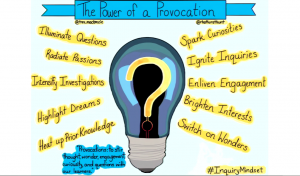Reading the article, Action Research in Education Getting to Grips with Perspectives and Models, highlighted many previous questions I raised in my previous blog post. In my prior post, I was contemplating how the practical side of teaching could be part of research. So far we have been learning primarily about how the theoretical side of research methodology. What methodology could implement the practical side of teaching into a research methodology?
In the article, it illustrates how the theoretical part of research can be joined with the everyday practice of teaching. The article emphasizes the relationship between the two as dynamic. They are constantly changing and moving. “The intricate and reciprocal relationship between theory and practice is a concept, which is usually very familiar to most teachers.” (McAteer, 2013). This quote highlighted the importance of teachers knowing both sides of coin.
First, experience is needed to know the underlining theories that guide education models. But more importantly, I believe that experience is needed to know your own practice and how it impacts your classroom environment and individual students.
Not so long ago, I was in university learning about education theory and how it can apply to the classroom. When I left university and joined the workforce, my head was filled with theories that I could implement into my own classroom. The issue that I discovered very quickly is that experience is essential. Experience gives the teacher the ability to assess the classroom. The classroom is dynamic in nature and knowing the classroom undercurrents and knowing the needs of the students inform your practice and what your classroom needs to succeed. The best teachers I know how to blend their personal teaching style/theories with the needs of the classroom.
An example of this is Trevor Mackenzie. After watching his presentation, I was wowed by how he has weaved his theoretical and practical practice into his everyday teaching. His ability to change directions to capture his students interests and directs them to learning and to investigate their curiosity. I have also seen this with the experienced teachers in my school.

Master teachers are teachers who have solid underlying principals and theories that guide their practice but know how to implement correctly depend on the needs of their classrooms. “This ability to both theorise and ‘do’ educational practice, this conversation between practice and theory, is one key difference between the experienced and the inexperienced educator.”
http://sk.sagepub.com.ezproxy.library.uvic.ca/books/download/action-research-in-education/n3.pdf
With completing on-going research for my masters it will allow me to connect more theoretical knowledge and apply it into my classroom on a day-to-day basis. With continuing to investigate into the topic of trying to increase community and parent involvement using technology as medium, it will open doors along the way. It will open opportunity to for me to read through up to date research and let it inform my practice. This will lead to be able to curate the information and decide what works for me and how to implement it. This is the building of becoming a better teacher and allowing experience and personal context influence how I use the theoretical work and weave it into my practice.
Photo Credit: Trevor MacKenzie : Inquiry Mindset
https://www.trevormackenzie.com/inquiry-mindset
July 23, 2019 at 11:10 pm
I appreciate the fact that you emphasize the importance of experience. Us, as educators, have to experience the learning moments and successes along side our students when we’re trying new things. It is always interesting seeing the journey of fellow teachers who are newer to the profession. Thank you for your blog post Sean! 🙂 I am excited to see what methods you find in your search for increased community and parent involvement.